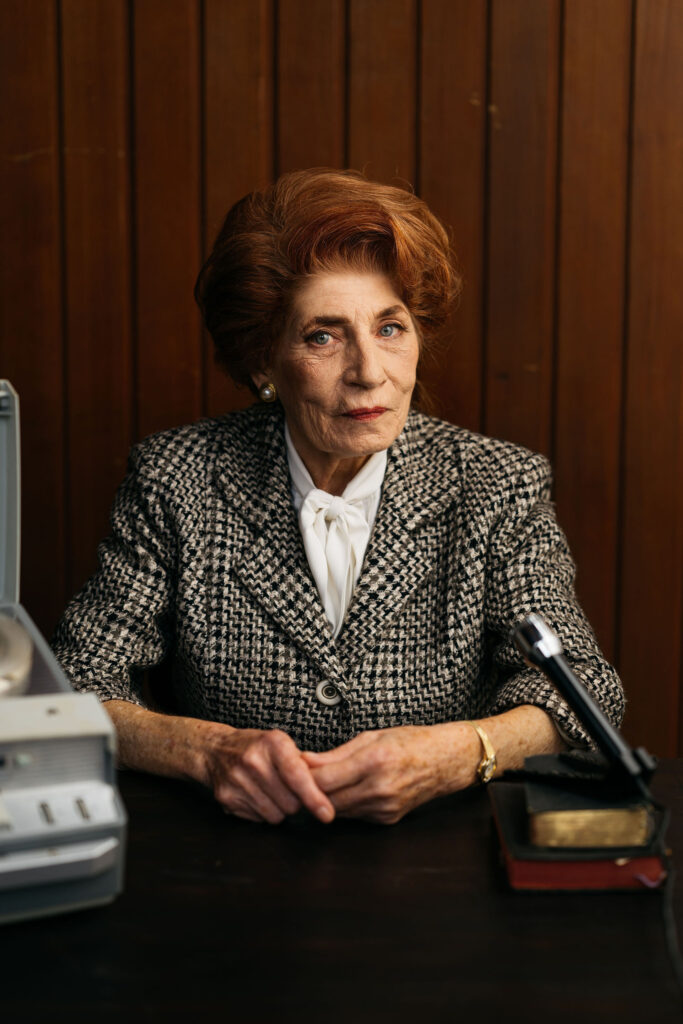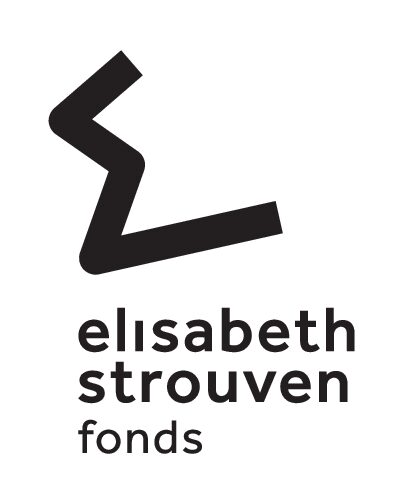Info
Will there still be singing in dark times?*
With Buurt Opera Malpertuis (BOM), local residents bring their stories and experiences to the Opera Zuid stage. Together with Tamara Jongerden (direction), Ginette Puylaert (singing and co-direction), Tim Sabel (musical direction) and Tim Stoter (children’s rehearsals) – from Studio Malpertuis, Opera Zuid’s home base – they give a glimpse into their lives. This year, the participants create a music-theatrical collage performance in which the music of Kurt Weill takes centre stage.
Happy End
How do you keep your spirits up when life is tough?
It’s busy in the radio recording studio. Actors and singers are waiting for their turn; they drink coffee, check their scripts again and exchange the latest news. Recording manager Henk keeps up the pace in good spirits, because everyone has to be ready before curfew, with the recordings of the radio play Happy End:
In this radio play sister Lilian of the Salvation Army has one goal: to bring people onto the straight and narrow. But then she meets Bill, who is about to rob a bank. Will the story of peace-loving Lilian and criminal Bill have a happy ending?
And what about us? Do we get a happy ending – when things are tough, when the world is giving us a hard time? Is there still singing in dark times? Yes, if it is up to the BOM participants. They will provide a happy ending to their stories themselves.
This BOM performance focuses on the music of Kurt Weill, particularly from the musical theatre piece Happy End. The musical accompaniment is provided by an ensemble consisting of young, talented students from the Maastricht Conservatory.
BOM will play performances of Happy End on 21, 22 and 25 January 2026.
Admission is free, but reservations are required. Click on ‘Tickets’ in the Playlist.
There are a limited number of places, so when it’s fully booked there will be a waiting list in case tickets become available again.
The BOM is a collaboration between Opera Zuid, Conservatorium Maastricht, Trajekt and the Kunstketel and is made possible by Elisabeth Strouven Fonds and Stichting Kanunnik Salden/Nieuwenhof.
*from Bertolt Brecht’s An die Nachgeborenen.
IN CONVERSATION WITH MUSICAL DIRECTOR TIM SABEL AND CHILDREN’S REHEARSAL DIRECTOR TIM STOTER
What makes Buurt Opera Malpertuis so special?
Tim Sabel: ‘The BOM performances are based on the words, movements, stories of the people who participate. They share their life experiences on stage, with each other and with the audience. That we make opera – art – out of that together, I find incredibly moving and special.’
Tim Stoter: ‘I think it’s great that there’s a very friendly atmosphere at BOM and at the same time it’s incredibly professional. Apart from that, I mainly work with the children. I love noticing how they too find each other, regardless of their different backgrounds, ages and situations. I haven’t seen such a diverse group become so close so quickly.’
How does that work; making a new opera with people with no opera experience?
Tim Sabel: ‘We make a collage performance around a theme that comes from the group itself. We choose music together and build the story through personal conversations and stories, acting, singing and movement. The participants play themselves, which makes it personal, direct and sometimes confrontational.
This year we are working mainly with music by the composer Kurt Weill. His work has an enormous eloquence, which fits well with BOM. We therefore work specifically on: what do you want to say, with what colour, with what intention, with what look in your eyes?’
What does it mean for the participants to make music with (semi-)professionals?
Tim Sabel: ‘The story they tell on stage – their own story – is lifted to a kind of next level to the max by the accompaniment of the musicians of the Maastricht Academy of Music. When, after months of rehearsals with only piano accompaniment, the live music of the ensemble joins in, everyone is enormously impressed. The musicians literally support and reinforce their singing, text, movement and story. The performance becomes real.’
Tim Stoter: ‘And I believe it also gives a boost. You do feel like a star when there is a whole ensemble playing music behind you, while you are in the spotlight with your beautiful costume on, in a cool setting!’
What does it do to children to participate in the neighbourhood opera?
Tim Stoter: ‘It’s great to see how those kids grow. They come in with little to no theatre experience, so everything is new. In the beginning, the concept of an audience and a stage is still very elusive (Why do I have to sing in that direction? Why do I have to come up at that exact moment? Why can’t I just talk in the wings?), but once there is a real audience, everything falls into place. Every child develops, in his or her own way. Mega fun!’
Tim Sabel: ‘Parents also notice a difference: children talk louder, are more confident. And at the end of the process, after the performances, their world collapses a little bit. No more BOM rehearsals?!’
Tim Stoter: ‘Right! They were really sad when it was finished last year. The whole process of making theatre was a tremendous eye-opener for all the children. It’s a good thing we soon started the workshops and rehearsals again.’
Tim Stoter: ‘Right! They were really sad when it was finished last year. The whole process of making theatre was a tremendous eye-opener for all the children. It’s a good thing we soon started the workshops and rehearsals again.’


















